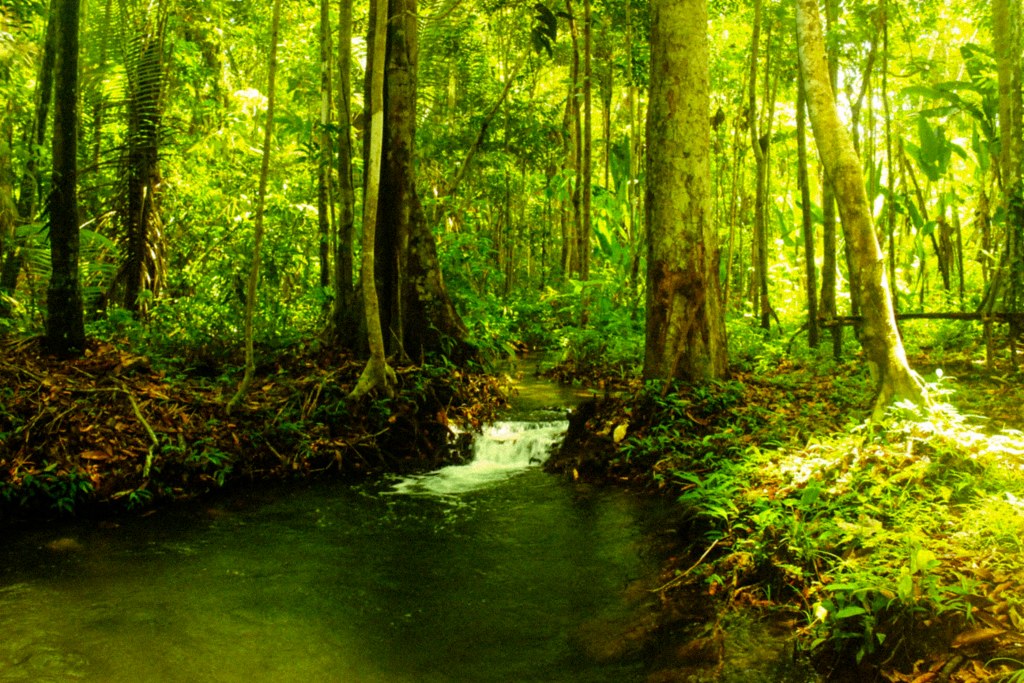- About
- Topics
- Story
- Magazine
- In-Depth
- Picks
- Opinion
- News
- Donate
- Signup for our newsletterOur Editors' Best PicksSend
Read, Debate: Engage.
| topic: | Sustainable Consumption |
|---|---|
| located: | Germany |
| editor: | Abby Klinkenberg |
A new carbon labelling initiative aimed at ensuring greater environmental transparency in the German food industry has been launched - not by the traditional regulatory bodies of the EU or the German federal government, but by a motivated group of food brands themselves. Supposedly, their motivation is altruistic: to help consumers make environmentally informed decisions about the products they buy. However, this gesture towards increased climate labelling in the food industry overlaps with the more insidious practice of greenwashing.
While individual consumer choices are far from the structural change needed to meaningfully address climate change, consumers are increasingly concerned about the environmental impact of the food in their shopping carts, which, incidentally, make up a quarter of global greenhouse gas emissions. This is especially true of younger generations, who will drive the markets of the future: 73 percent of Gen Z consumers are willing to spend more on sustainable products, according to a 2020 report by First Insight. Given shifting consumer trends towards climate consciousness, companies are incentivised to market their products accordingly.
Facing an onslaught of environmentally motivated communications from producers endeavouring to capitalise on this green wave, it is unsurprising that 43 percent of consumers do not trust the environmental messages peddled by brands, according to the Spanish consumer group OCU. This skepticism is warranted - and companies are searching for ways to communicate their environmental commitments in an official and trustable manner. For companies keen to be trusted, climate labelling seems the perfect answer. And perhaps one that is also too decentralised: currently, the Ecolabel Index monitors over 450 climate labels.
Yet another organisation has been announced: Together for Carbon Labelling, the recently launched initiative intended to introduce a climate-conscious labelling system to Germany, is the brainchild of four major players in the German food landscape: Oatly, Frosta, Mymuesli and Nestlé Germany. The environmental NGOs German Zero and Global Impact Alliance have joined the campaign, lending much-needed credibility to the project.
While German media outlets tout this initiative as a win for climate action, there is reason to believe that it should be read as just another insidious instance of greenwashing. Both Oatly and Nestlé have recently suffered from public relations woes relating to the former’s investment from the notorious climate villain Blackstone in 2020 and the latter’s lengthy and damning record of environmental and human rights violations. This project provides them with some much needed positive press.
The initiative builds on Oatly's push for the German government to introduce climate food labels last year, a call echoed by Germany’s Scientific Advisory Board on Agricultural Policy, Food and Consumer Health (WBAE), which also recommended that the state introduce mandatory climate labelling more generally.
Instead of creating a separate carbon label, the German government has emphasised that it is supporting EU regulatory plans and “aims to create a label that brings previous systems together,” referring to the organic, regional, animal wellness and Nutriscore labelling systems that already exist. That existing efforts are underway begs the question whether or not Together for Carbon Labelling is a mere publicity stunt intended to redeem some of these brands’ reputations among consumers - and earn them a seat at the regulatory table moving forward.
A similar move towards climate labelling has also recently taken off in the French food industry with the Eco-Score - also initiated by French companies. This past spring, European retailers Lidl and Colruyt announced that they would test out the labelling system on their products.
Since the climate crisis is not likely to end soon, consumer choices will continue to trend towards eco-friendly products - and unregulated eco-friendly messaging. Until a governmentally sanctioned climate labelling standard is set, we can expect more corporate-inspired green labelling initiatives to proliferate.
Perhaps there is an end in sight: the EU has announced that it will advance an “ecolabel” strategy in 2024.
Photo by Jess Torre

